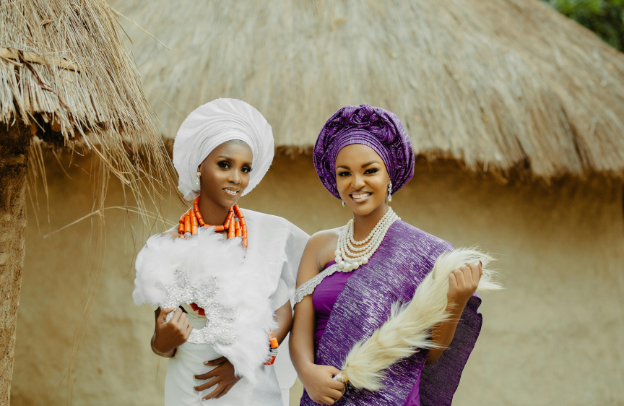From Diversity to Unity: How Group Tourism Promotes Collaborative Learning in the Diaspora

In a sun-drenched courtyard in Elmina, Ghana, a group of travelers from Atlanta, Toronto, London, and São Paulo stand in silence. They are not simply tourists; they are members of a heritage tour, gathered to confront a past that binds them together in ways deeper than their passports reveal. As their guide recounts the harrowing history of the slave castles lining West Africa’s coast, a shared awareness ripples through the group.
Learn How to Leverage Your Story through our Story To Asset Framework.
In that moment, the power of collective travel becomes evident, not just in the ability to witness, but in the ability to learn, process, and remember together.
The Power of Collective Learning Through Travel
Group travel is evolving into more than a recreational activity; for the African diaspora, it is a powerful conduit for collaborative learning and cultural restoration. These group experiences help participants connect dots scattered across geographies, languages, and generations.
By traveling together, diaspora communities engage in shared learning experiences that deepen their understanding of African heritage, promote intergenerational dialogue, and strengthen collective identity.
According to a study published by Tourism Geographies, group heritage tours facilitate not only cultural reconnection but also “transformational learning”, where participants challenge prior assumptions and develop new, inclusive worldviews.
This form of learning is particularly impactful for diaspora travelers who often arrive with fragmented or romanticized notions of their ancestral homelands. Wondering what we even mean by collective learning? Let’s expand on that shortly.
What is Collective Learning?
Collective learning is the process by which a group of people acquires knowledge, skills, and cultural insights through interaction and shared experiences. By coming together, exchanging ideas, and solving problems collaboratively, the group builds a deeper, collective intelligence that enhances their ability to innovate and pass on wisdom to future generations.
An example of collective learning in action is a study group, where members pool their knowledge, discuss complex ideas, and support one another in preparing for assessments.
Through this exchange of perspectives, each participant develops a more comprehensive understanding, ultimately leading to better performance as a group. Now, here are Three Unique Ways to Promote Collective Learning Through Group Tourism:
Immersive Cultural Collaboration
Group travel offers a dynamic setting for hands-on cultural learning. Tourists can engage in activities that require collective participation, like cooking a traditional dish together or creating a collaborative piece of art.
For example, visiting a community known for its beadwork or pottery, tourists can learn the craft together, exchanging techniques and ideas, deepening their appreciation for the art form, and leaving with a piece they created as a symbol of their shared experience.
Interactive Group Storytelling and Reflection
At heritage sites, storytelling becomes a tool for shared discovery and reflection. Instead of simply listening to a guide, tourists can actively participate in storytelling circles, where local guides and community members invite them to share their own perspectives or personal connections to the history.
Imagine a group visiting the Sukur Cultural Landscape in Adamawa State, where the guide invites travelers to reflect on how the landscape resonates with their own stories of tradition and heritage. This interactive approach fosters a rich dialogue, encouraging a deeper, more personal connection to the site.
Collaborative Learning Expeditions
In group travel, collaborative learning expeditions allow tourists to immerse themselves in a subject as a group. For example, during a visit to the Osun-Osogbo Sacred Grove, a group might divide into small teams to research and discuss different aspects of Yoruba spirituality, from ancient rituals to the symbolism of the sacred forest.
Later, they could come together to share their findings and insights, weaving a collective understanding of the cultural significance of the site. This collaborative research model fosters deeper engagement, as each participant brings a unique perspective, enriching the group’s collective knowledge.
Through these immersive and collaborative experiences, group travel transforms from a simple sightseeing trip into a journey of shared learning. By blending cultural immersion with collective exchange, travelers don’t just learn about a destination—they actively contribute to a vibrant, living tapestry of knowledge that enhances the group’s connection to both the culture and each other.
Why Group Tourism Matters for Diaspora Identity
For many African descendants in the Americas and Europe, Africa is both a spiritual anchor and a historical enigma. Systemic erasure of identity through slavery, colonization, and forced migration has left cultural gaps that formal education rarely fills.
Group travel offers an experiential classroom, where stories, sights, smells, and sounds come together to paint a more holistic picture of African civilizations past and present.
Take the popular “Birthright Africa” initiative, for instance. Modeled after the Jewish Birthright program, it offers free educational trips to Africa for young people of African descent. Participants don’t just tour, they engage with local historians, artists, entrepreneurs, and students, encouraging exchange over consumption.
The result? A more layered understanding of not only Africa’s cultural richness but also its contemporary dynamism, contradicting decades of negative media framing.
Turning Diversity into Dialogue
Group travel also promotes dialogue among diaspora communities themselves, whose identities are often shaped by vastly different national, linguistic, and religious experiences. An African American visiting Nigeria might travel alongside a Jamaican, a Haitian, or a Brazilian.
Their histories differ; some descended from enslaved peoples, others from free migrants, but the group context fosters a space for sharing narratives, bridging gaps, and recognizing common threads.
These moments are far from superficial. A 2023 study in the International Journal of Heritage Studies found that group heritage tours created “peer learning environments” where participants informally educated one another through discussion, reflection, and storytelling. In essence, the group itself becomes a learning ecosystem.
See also DTE (Diaspora Tourism Experience): Reaching Out To The African Museum Of Verona
Memory as a Shared Construction
Memory, especially in diaspora communities, is more than individual recollection; it is a social act. It is through group rituals, visits to ancestral sites, and shared interpretation of history that memory becomes durable.
When a group of Ghanaians and Black Britons visit the slave dungeons of Cape Coast together, the memory formed is not just personal but collective. It becomes part of a larger narrative that can be passed down, repeated, and reshaped across generations.
“My great-grandfather came from a village that was one of the last to be freed of slavery,” she explained. “From an early age, we were told where we came from – slavery wasn’t taught in school, so as an adult I was determined to find out for myself,” the traveler said in a BBC article in 2013, A pilgrimage to Ghana’s slave forts.
This is particularly important for younger generations born far from Africa. Many Gen Z and Millennial travelers are using heritage tours to reclaim lost histories.
Through platforms like Instagram and YouTube, they document their journeys, amplifying them to broader audiences. Cultural tours offered by companies like The African Diaspora Alliance and Travel Noire curate not only physical itineraries but also emotional landscapes that invite reflection, healing, and community building.
Creating Global Citizens with Local Heartbeats
As these group travelers explore places like Ethiopia’s Lalibela churches, Senegal’s Gorée Island, or Nigeria’s Osun-Osogbo Grove, they begin to see Africa not as a monolith but as a mosaic. This exposure challenges diasporic participants to rethink stereotypes and appreciate the continent’s regional complexities.
Moreover, these insights often translate into tangible projects. After returning home, many travelers engage in transnational initiatives, opening African-themed schools, starting Pan-African businesses, or supporting rural development programs. The impact of one trip often ripples outward.
For example, entrepreneur Jessica Nabongo, the first Black woman to visit every country in the world, regularly speaks about on “The Catch Me If You Can” how her group travels to African countries sparked projects that support Black-owned travel brands and ethical travel models
Her story is just one among thousands where travel led to advocacy, investment, and long-term diaspora engagement.
Bridging Generational Divides
Group travel is also a vital tool in bridging generational divides within diaspora families. Parents and grandparents often bring younger family members on these journeys to instill pride and historical awareness. In many cases, younger travelers help older relatives reconnect with traditions that colonialism or migration had interrupted.
Programs such as Africa for the Africans curate group tours that mix historical education with cultural immersion; traditional dance lessons, cooking classes, naming ceremonies, and more. These aren’t just leisure activities; they are gateways to ancestral memories and intergenerational continuity.
Challenges and the Road Ahead
Despite its transformative potential, group travel is not without challenges. There’s a risk of superficial experiences if tours are not curated responsibly. There are also issues of affordability, with many heritage trips priced out of reach for working-class diasporans. Additionally, some tours risk reenacting trauma without providing the tools for emotional processing or healing.
Addressing these gaps requires a collaborative effort between tour organizers, scholars, local communities, and diaspora leaders. Co-creating itineraries, prioritizing local voices, and integrating wellness and reflection sessions can elevate group travel from sightseeing to soul-seeing.
There is also a growing call to decolonize the travel industry itself. Too often, African destinations are marketed through a Western gaze, emphasizing poverty or exoticism rather than agency and innovation.
Diaspora-led group tours can subvert these narratives, offering more nuanced, Afrocentric perspectives that honor both history and present-day progress.
See also Become Part of Diaspora Memorial & Tourism Experience (DTE) – WeDiasporan Volunteer Series 2/21
Conclusion: Moving Forward Together
Group travel is more than a movement; it’s a memory machine. It transforms airports into portals and fellow travelers into co-educators. For the African diaspora, traveling together is not just about going back; it’s about moving forward, together, informed, and united.
In an increasingly fragmented world, the collective act of discovering, mourning, celebrating, and learning on shared soil may be one of the most profound tools we have to mend broken stories and reweave the threads of a global African identity. It is in this journey, from diversity to unity, that the true beauty of diaspora group travel unfolds.
Learn How to Leverage Your Story through our Story To Asset Framework.





